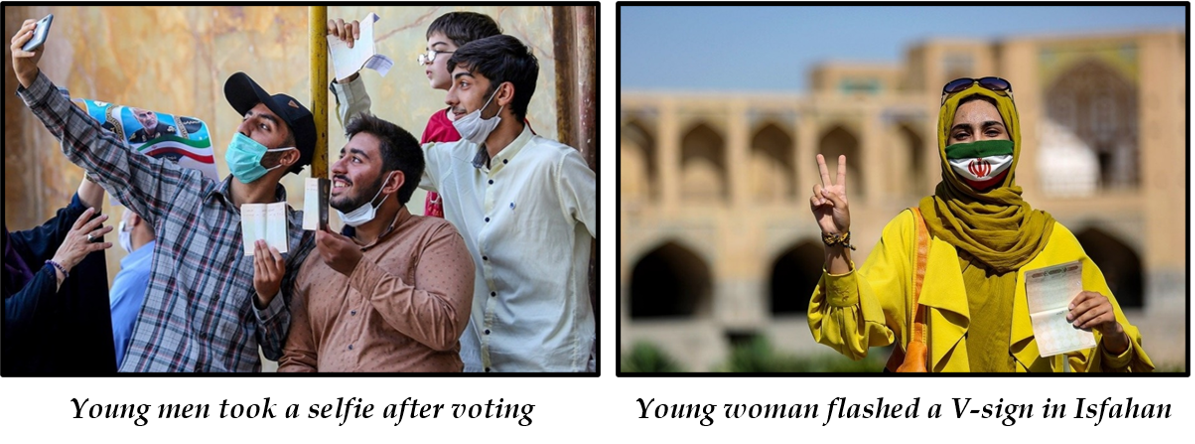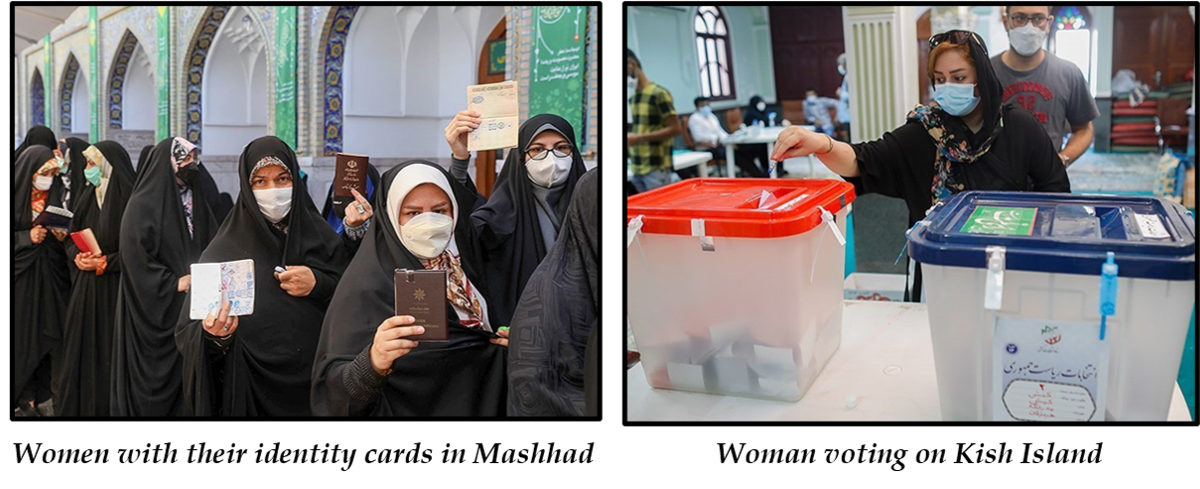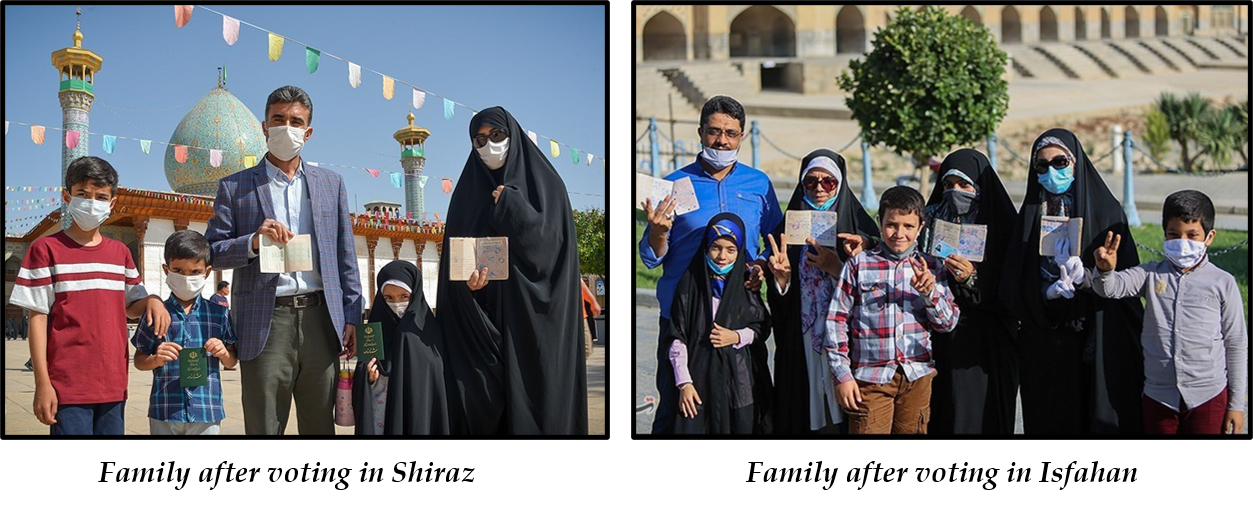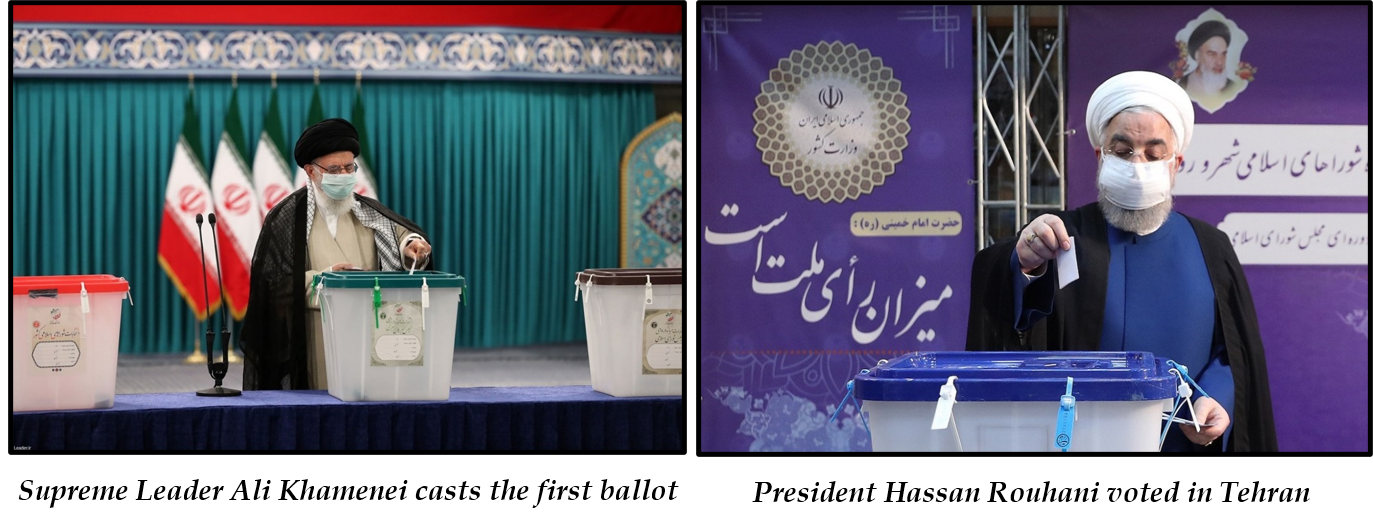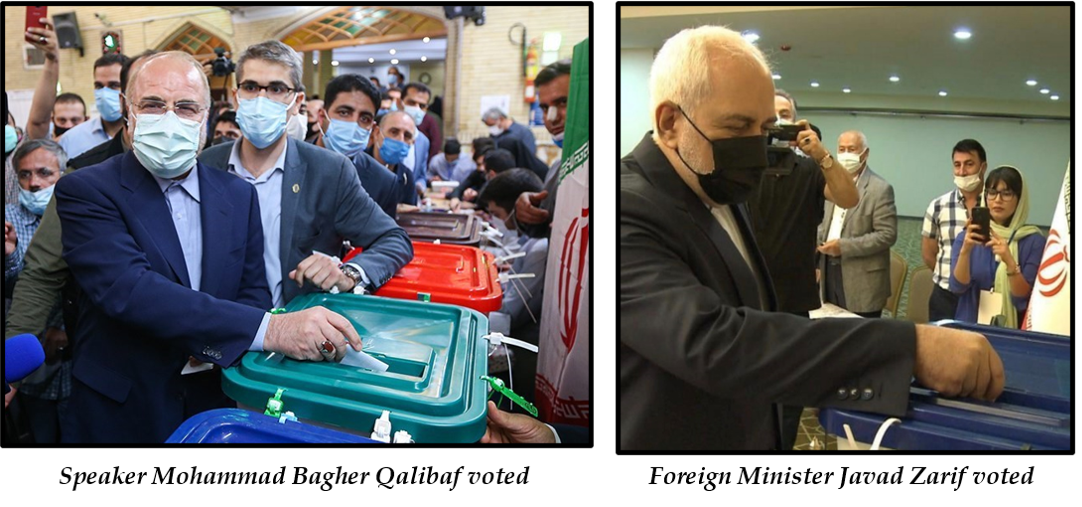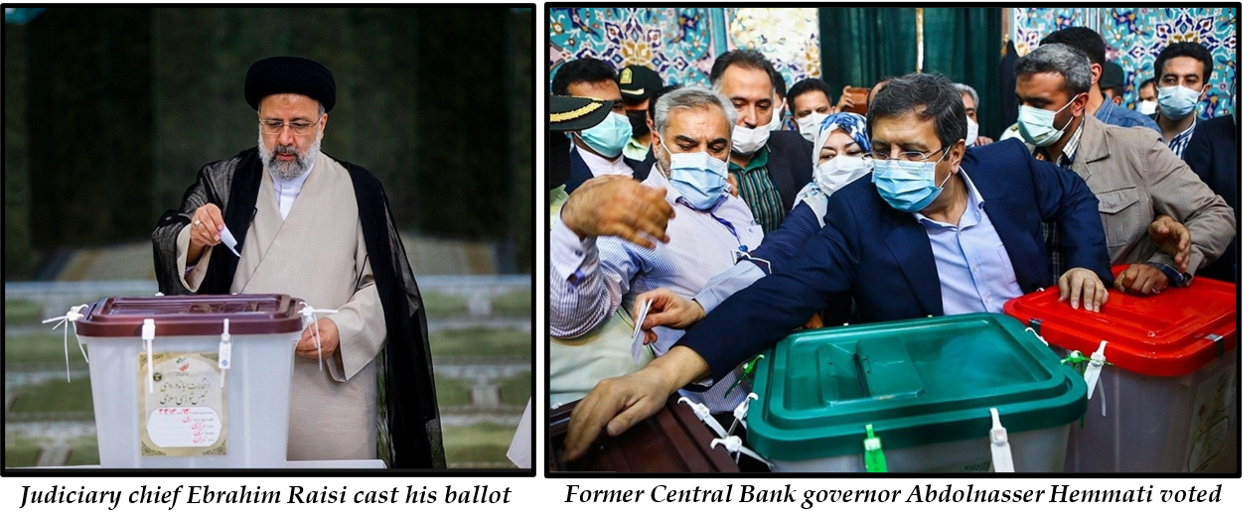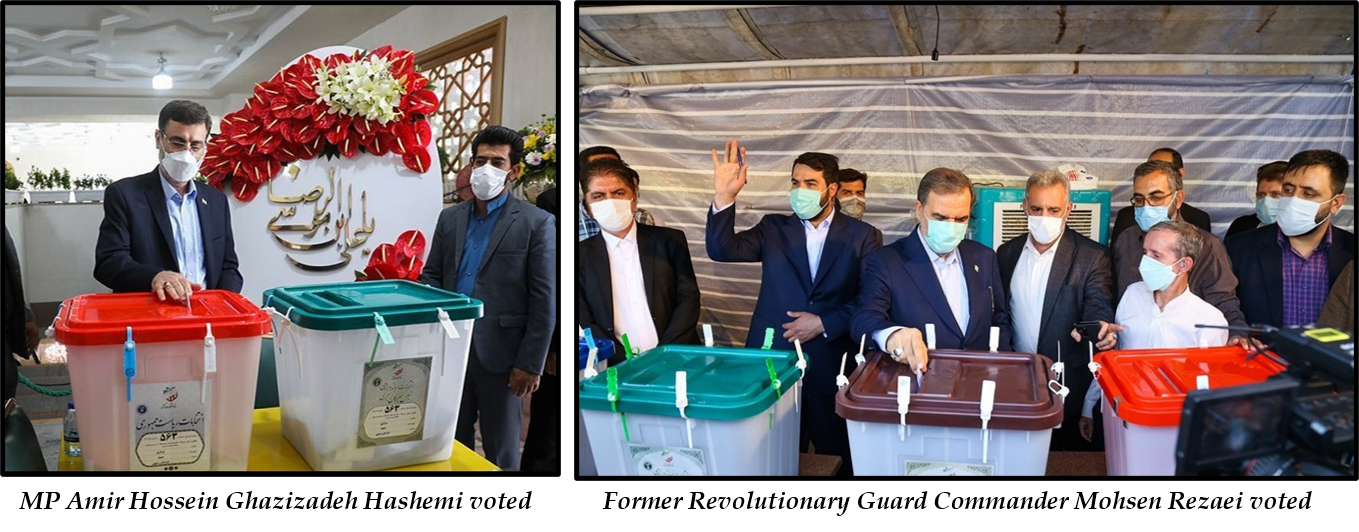On June 18, Iranians voted for a new president at some 67,000 polling stations in mosques, schools, gymnasiums, and religious shrines. Iran is still trying to pull out of the fourth wave of the COVID-19 pandemic, so voters were required to wear masks and were asked to bring their own pens rather than put their fingers in ink – as in past elections – to avoid spreading the virus. Poll workers wore gloves, and ballot boxes were disinfected. Iranians could also vote at 234 polling stations abroad, including 27 in 18 states in the United States, according to Iran’s ambassador to the United Nations.
Supreme Leader Ayatollah Ali Khamenei cast the first ballot in Tehran and urged Iranians to “go ahead, choose and vote.” After casting his ballot, judiciary chief and frontrunner Ebrahim Raisi pleaded with eligible voters. “I beg everyone, the lovely youths, and all Iranian men and women speaking in any accent or language from any region and with any political views, to go and vote and cast their ballots.” But he admitted that people may be “so upset that they don’t want to vote” because leading politicians had been disqualified.
Other top officials, including President Hassan Rouhani and Foreign Minister Mohammad Javad Zarif, posted photos from their polling stations. But turnout was low. Activists had called for a boycott after the Guardian Council disqualified the vast majority of the almost 600 Iranians, including 40 women, who applied to run. Those disqualified included First Vice President Eshaq Jahangiri, former Speaker of Parliament Ali Larijani, and former President Mahmoud Ahmadinejad.
Only five million Iranians – less than 10 percent of the 59 million eligible voters – turned out in the first six hours. Widespread power outages in Tehran led polling workers to send some voters home, Tasnim News Agency reported. Most lines outside polling stations had dissipated by the early evening, the Associated Press reported. Often with little to do, poll workers listened to radio, played on their phones, or napped. The government extended voting until 2 a.m. Saturday morning to encourage participation. The final turnout was 48.4 percent, the lowest in a presidential election since the 1979 revolution.
Raisi was declared the winner the next day with 62 percent of the total vote count, although the majority of eligible voters did not participate. The following are photos from Election Day across Iran.
Youth
Women
Families
Political Leaders
Presidential Candidates
Polling Locations
Tehran
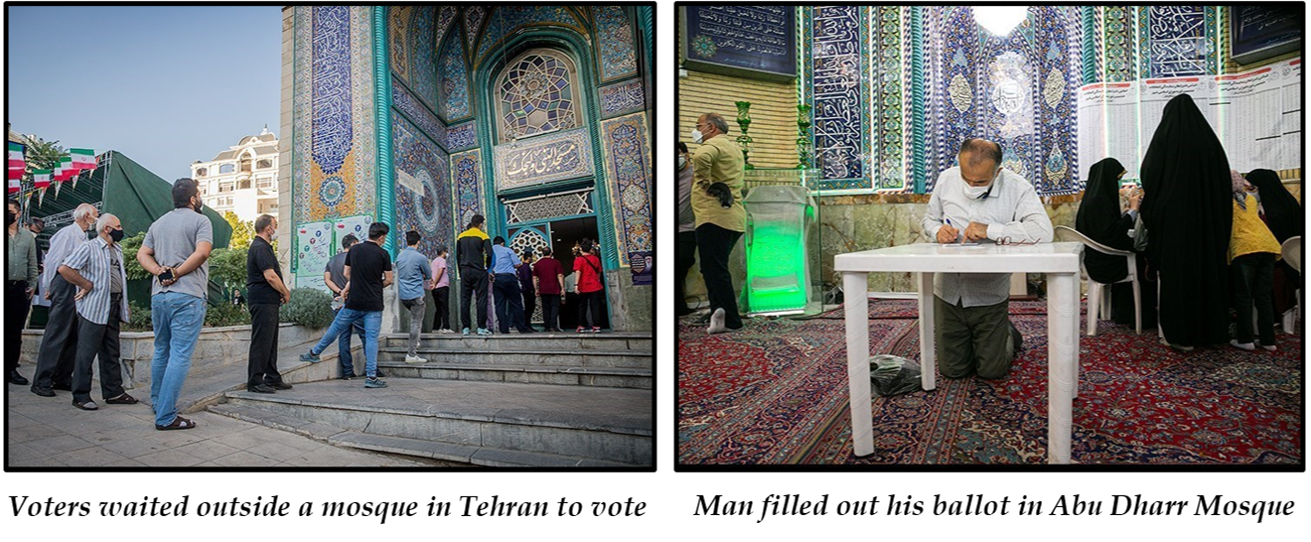
Mashhad
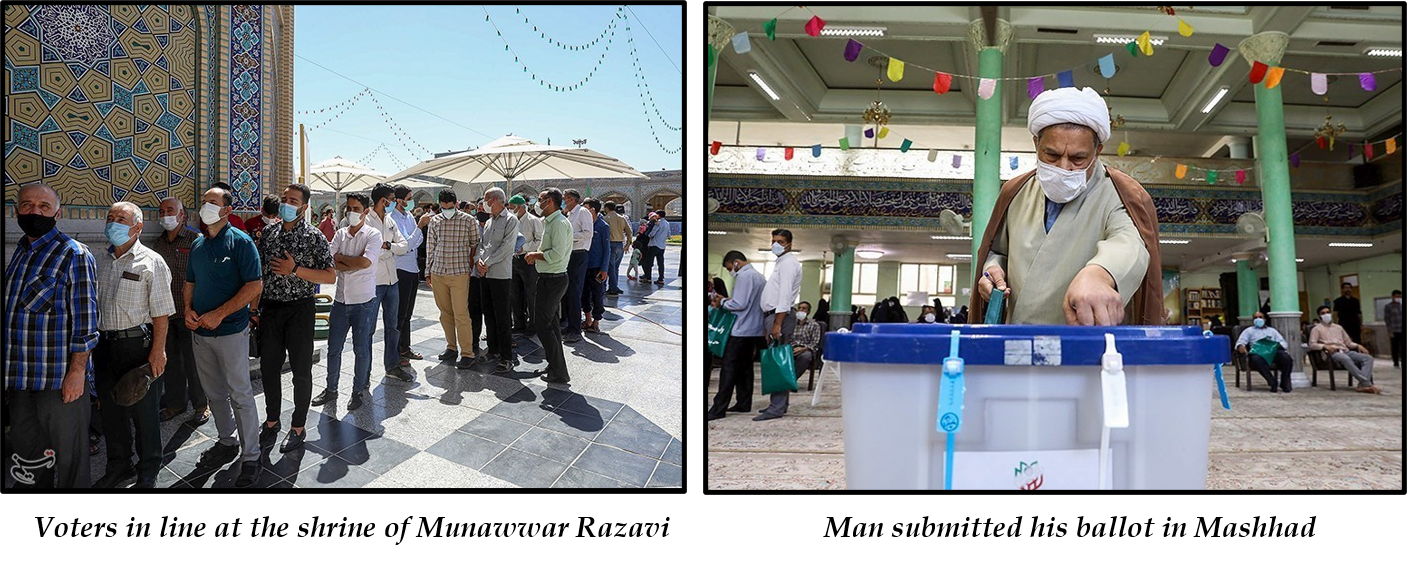
Shiraz
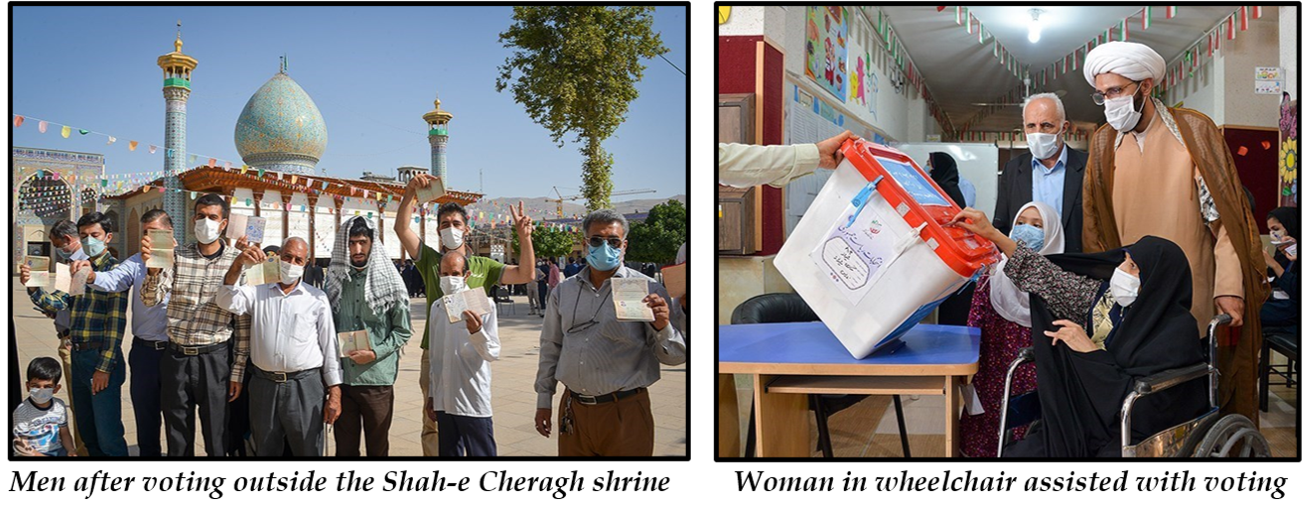
Qom
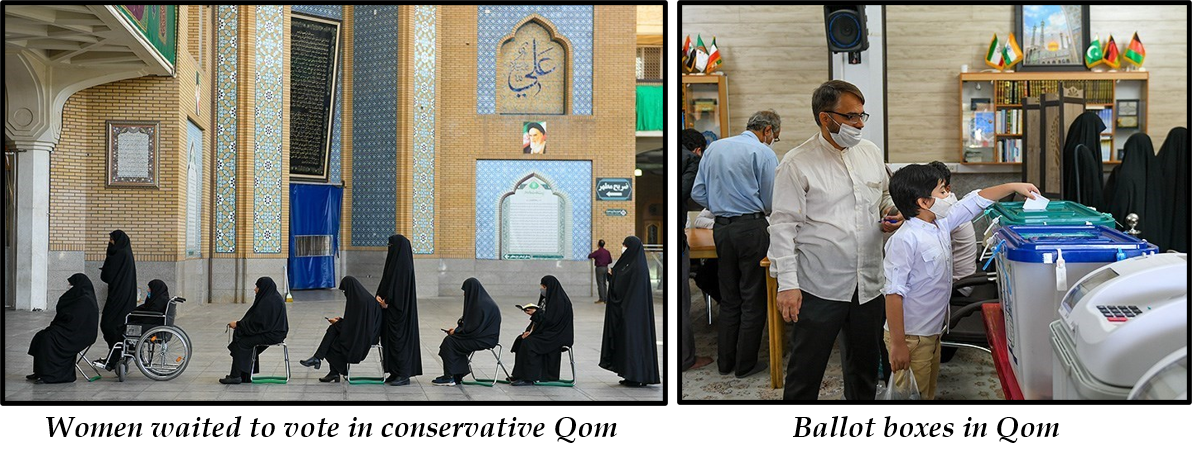
Kerman
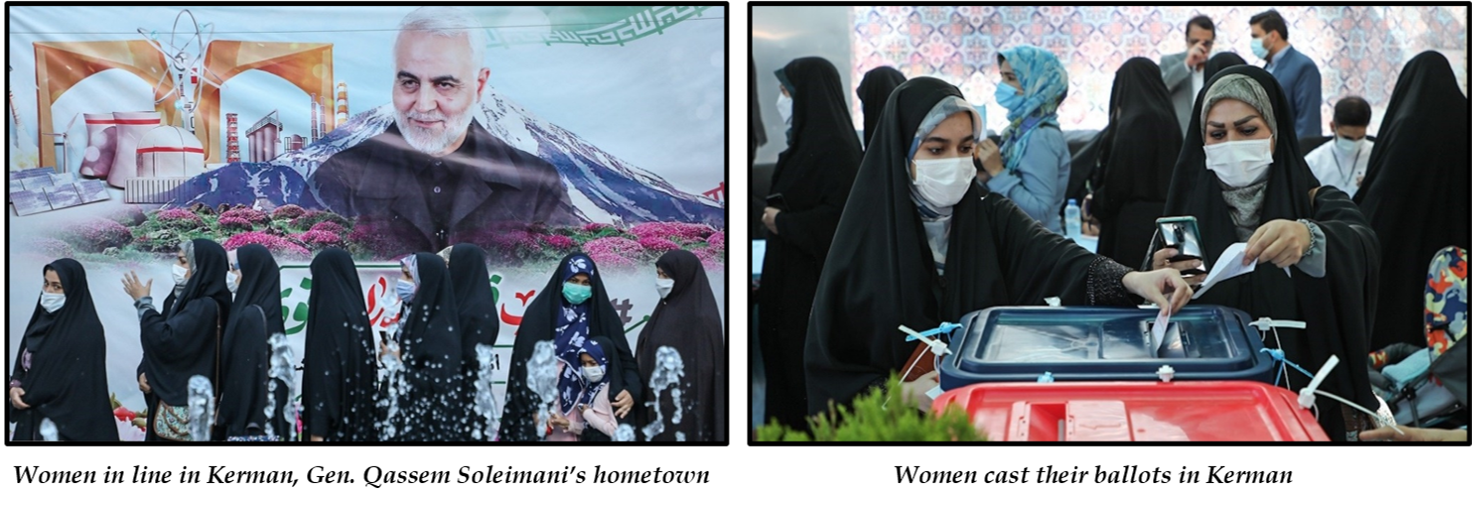
Shahr-e Kord
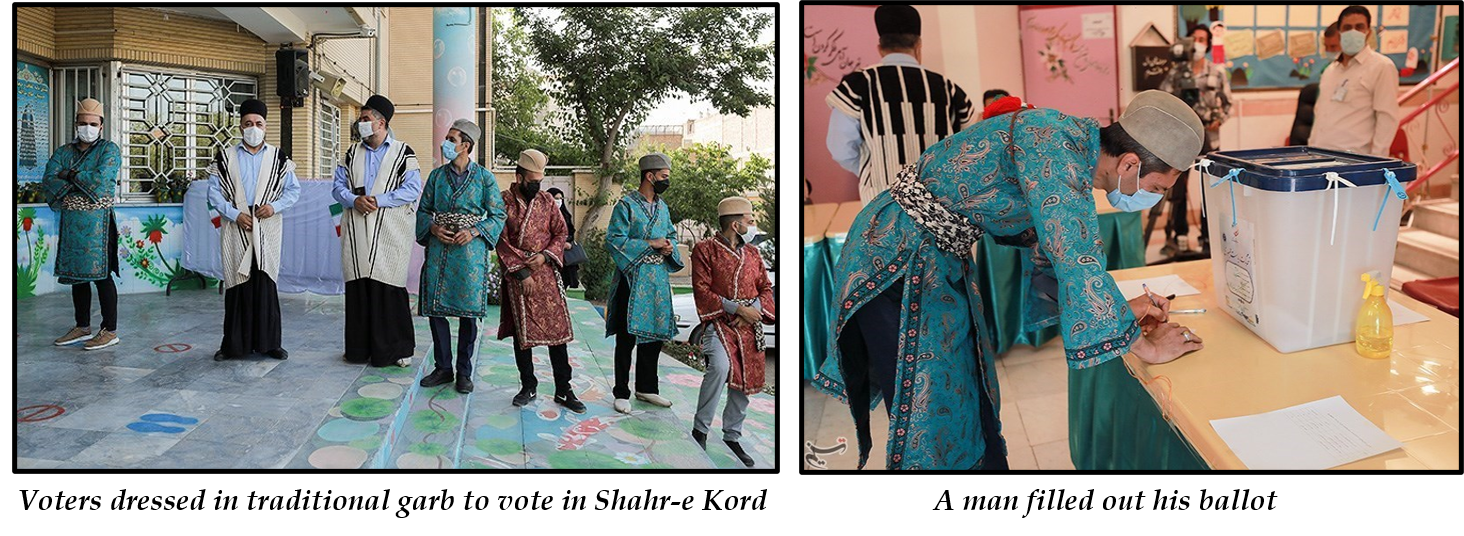
Kermanshah
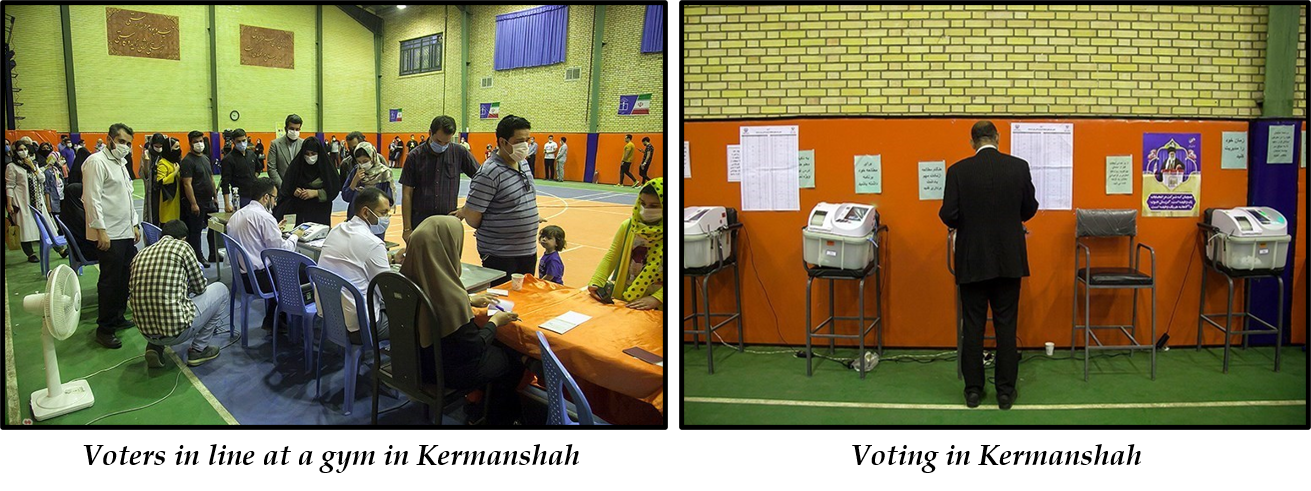
Andrew Hanna, a program specialist at the U.S. Institute of Peace, assembled this photo essay.

